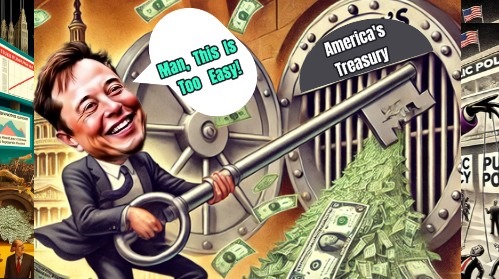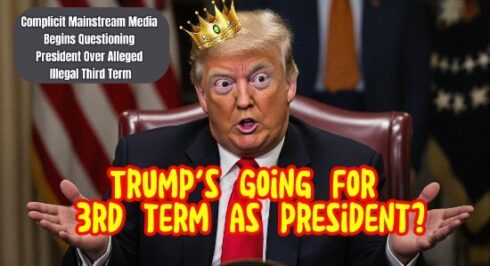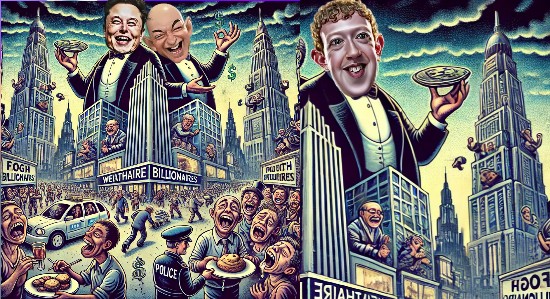Oped | President Donald Trump has appointed Elon Musk to lead the newly minted Department of Government Efficiency (DOGE).
This move, ostensibly aimed at streamlining federal operations, has granted Musk and his team access to the U.S. Treasury’s payment system—a system responsible for managing trillions of dollars in federal transactions, including Social Security and Medicare benefits. Critics are now left wondering: How did America become so affordable that a billionaire could snag the keys to the nation’s vault?
Billionaire Elon Musk’s Government Takeover of the Treasury is Like The Fox in the Henhouse?
In what looks like an Elon Musk’s Government Takeover, the decision to grant DOGE access to the Treasury’s payment system led to the resignation of David Lebryk, a senior Treasury official who opposed Musk’s involvement. Following Lebryk’s departure, Treasury Secretary Scott Bessent authorized this access, a move that has been met with legal challenges from federal employee unions.
They argue that it violates privacy laws and endangers confidential taxpayer information. Senator Ron Wyden, Chair of the Senate Finance Committee, expressed concerns over the potential national security risks posed by granting DOGE full access to the Treasury’s payment system. He highlighted the sensitivity of the data involved and questioned the implications for federal spending oversight.
Elon Musk’s Government Takeover and The USAID Closure: Efficiency or Evisceration?
Elon Musk’s government takeover led to his swift role in the abrupt closure of the U.S. Agency for International Development (USAID) has drawn significant criticism. Democrats have accused Musk and the Trump administration of orchestrating a “plutocratic coup” by dismantling federal agencies without congressional approval.
The sudden shutdown has left many questioning whether this is a genuine effort to eliminate wasteful spending or a reckless move that undermines America’s global humanitarian efforts.
Work Culture Shock: From Silicon Valley to Pennsylvania Avenue
Bringing his “hardcore” work culture from Silicon Valley to Washington, Musk has reportedly enforced 120-hour workweeks within DOGE.
While this approach might work for launching rockets, its application in federal governance has raised eyebrows. Critics argue that such an extreme work ethic could lead to burnout among government employees and question the efficacy of applying corporate practices to public administration.
Legal and Ethical Quagmires: Navigating Uncharted Waters
The legal and ethical implications of Musk’s appointment are vast and complex. As an unelected billionaire with unprecedented access to federal systems, concerns about conflicts of interest, lack of accountability, and potential violations of government ethics laws have come to the forefront.
The situation has sparked a broader debate about the balance of power within the federal government and the role of private individuals in public administration.
Final Thoughts: Democracy on the Discount Rack?
As legal and political challenges unfold, the implications of Elon Musk’s government takeover and his involvement in federal operations continue to be a focal point of national discourse. The question remains: Has America been sold at a discount, allowing a billionaire to acquire unprecedented access to its most sensitive systems? Or is this a bold step toward a more efficient government? Only time will tell, but for now, it seems the line between public service and private enterprise has never been blurrier.
Note: This article is a satirical commentary on recent events and should be interpreted as such.














